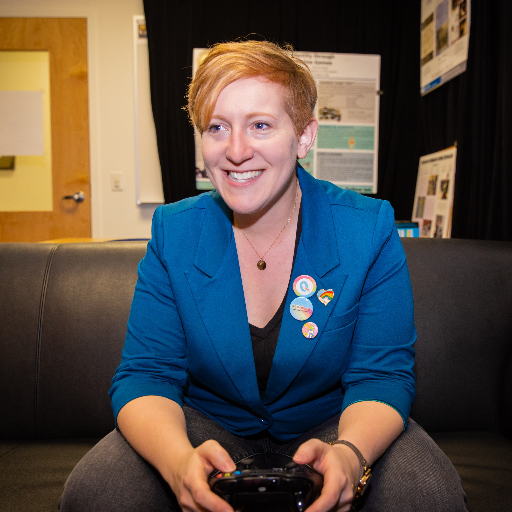"The Queer Games Avant-Garde: How LGBTQ Game Makers Are Reimagining the Medium of Video Games"
The queer games avant-garde is a vibrant network of independent video game developers whose radical, experimental, and deeply queer work is driving a momentous shift in the medium of video games. This talk draws from interviews with these innovative game-makers, tracing patterns and tensions across networks of contemporary queer and trans game development. Their insights go beyond typical conversations about LGBTQ representation in video games, however. What emerges from these conversations is an exploration of queer game-making practices, the politics of queer independent video games, queer aesthetics, and the future of queer video games and technology. Even as they wrestle with these topics, LGBTQ game makers subvert and redefine the medium of video games by placing queerness front and center.

Bonnie "Bo" Ruberg, Ph.D. (they/them) is an assistant professor in the Department of Film and Media Studies and a core faculty member for the graduate program in Visual Studies at the University of California, Irvine. They are also an affiliate faculty member in the Department of Informatics, where they co-run the CATS (Critical Approaches to Technology and the Social) research lab.
Professor Ruberg’s research explores gender and sexuality in digital media and digital cultures with a focus on queerness and video games. They are the author of The Queer Games Avant-Garde: How LGBTQ Game Makers Are Reimagining the Medium of Video Games (2020, Duke University Press) and Video Games Have Always Been Queer (2019, New York University Press) and the co-editor of Queer Game Studies (2017, University of Minnesota Press). Ruberg is also the co-founder and co-organizer of the annual Queerness and Games Conference.
Professor Ruberg received their Ph.D. in Comparative Literature from the University of California, Berkeley, with graduate emphasis certification from the Berkeley Center for New Media and the Department of Women and Gender Studies. They served as a Provost’s Postdoctoral Scholar and member of the Society of Fellows in the Interactive Media & Games Division in the University of Southern California’s School of Cinematic Arts. Prior to entering academia, they worked as a journalist, reporting on gender, sexuality, and culture in technology and video games.


